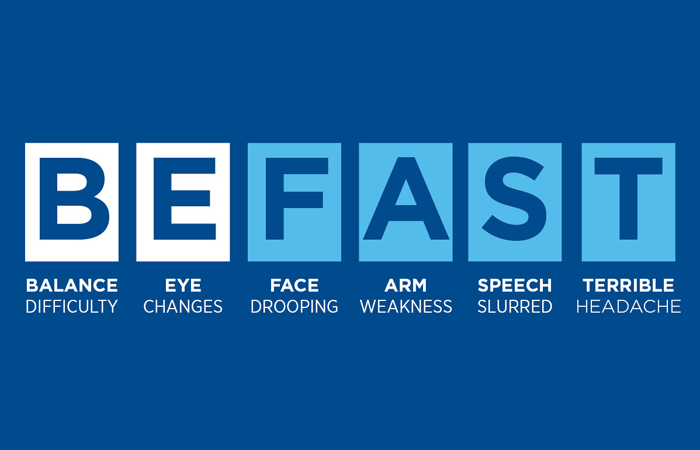Seconds count when you or a loved one is experiencing a stroke. It’s vital to receive stroke treatment as quickly as possible. Use the BE-FAST acronym to remember stroke warning signs.
B - Balance difficulty: Sudden loss of balance or coordination, weakness or dizziness
E - Eye changes: Sudden onset of vision changes in one or both eyes
F - Face drooping: Sudden onset of facial drooping, usually on one side
A - Arm weakness: Sudden weakness or numbness in the arm, leg or face, usually on one side of the body
S - Slurred speech: Sudden onset of trouble speaking or difficulty in understanding speech
T - Terrible headache: Sudden onset of severe headache with no known cause

